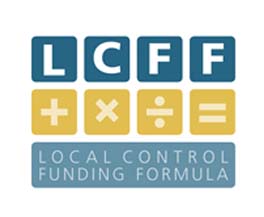As the Local Control Funding Formula and its Local Control and Accountability Plan are added to existing accountability measures under No Child Left Behind and the Common Core State Standards, education policymakers are talking about how local educational agencies can coordinate the three accountability systems. At a recent seminar hosted by Policy Analysis for Education, CSBA Assistant Executive Director for Policy and Programs Angelo Williams, Ed.D., joined several state-level education policymakers to discuss the different approaches to accountability and offer their best suggestions for going forward.
Grant Watch: $700 million in grant funds available for student success
For 34 years CSBA’s Golden Bell Awards program has identified quality best practices focused on student success. The larger education grant funding world has taken notice. Golden Bell Award winners, like Corona Norco, have gone on to win national recognition. Remember, funders are interested in a track record of success and view their funds as investments in innovative but tried and true methods with a verifiable track record. In future editions of Grant Watch I’d like to share with you some proven methods for securing grant funds to amplify your resources to support your mission of student success for all.
Schools have a role in helping children get health insurance
CSBA is partnering with The Children’s Partnership “All In” campaign to help schools get information out to families and employees about the new affordable health coverage opportunities. Covered California, California’s new health insurance marketplace, opened on Oct. 1 and offers ways for millions of Californians to obtain health coverage, including health and dental coverage for children.
How will the federal government shutdown affect California schools?
The following is the most recent information on the impact of the federal shutdown on education. Just after midnight, the Office of Management and Budget sent out a memorandum to heads of departments and agencies instructing those organizations to begin shutdown procedures. Last Friday, a memorandum from the U.S. Department of Education was sent out describing the agency’s plan of operation in the event of a shutdown.
Ask Gov. Brown to veto AB 375
Granted, the process required to dismiss a teacher is long, cumbersome, and costly. But Assembly Bill 375, now on the governor’s desk, is not balanced reform. It sets time limits for commencing and completing the process for dismissing a teacher, while also adding procedural steps that defense counsel could use to delay. Ask Gov. Jerry Brown to veto the bill now.
Partial credit for foster youth—a tool for LCFF success
The Local Control Funding Formula affirms the state’s commitment to provide additional resources to students with greater challenges, foster youth among them. Because students in the child welfare system often move from home to home and school to school, they frequently lose academic credits that can put them at risk of not graduating on time.
Does common core = common curriculum?
A recent Education Week article quoted excerpts of a speech delivered by U.S. Department of Education Secretary Arne Duncan to the American Society of News Editors in which he defended the Common Core State Standards (CCSS). Duncan stated that those opposed to Common Core believe that the standards and tests will lead “to mind control, robots, and biometric brain mapping.” That may sound extreme, but it is not surprising. There has been a growing resistance to CCSS.
CSBA President Marks named Elected Woman of the Year
CSBA President Cindy Marks has been named Elected Woman of the Year by California Women Lead, a nonprofit, nonpartisan association of women holding – or interested in holding – elected or appointed office. She was among five elected or appointed women honored by the organization in Sacramento on Aug. 21, and the fourth CSBA president to also serve on the board of directors of California Women Lead.
LCFF input sessions wrap up in Sacramento and Bakersfield
A final two days of sessions to gather input about implementation of the Local Control Funding Formula drew capacity crowds Aug. 12-13. The sessions were facilitated by WestEd on behalf of the State Board of Education and California Department of Education. They provided local governing board members and other education advocates an opportunity to weigh in as the State Board and CDE develop regulations, templates and guidance for local educational agencies to implement LCFF.
LCFF: State hears questions, concerns, desires about new funding formula
Capacity crowds at the first of three public input sessions on implementation of the state’s new school funding formula revealed a thirst for more information and details about the law, as well as concern about its accountability requirements. Local community, district and county education leaders, teachers and classified staff have lots of enthusiasm and interest for successfully implementation of LCFF. There is a strong desire for clarity around the requirements on use of supplemental and concentration funds; for more information and data on the state priorities to be included in the Local Accountability Plan Templates and for authentic engagement of parents and especially parents of English learners and African-American students.










